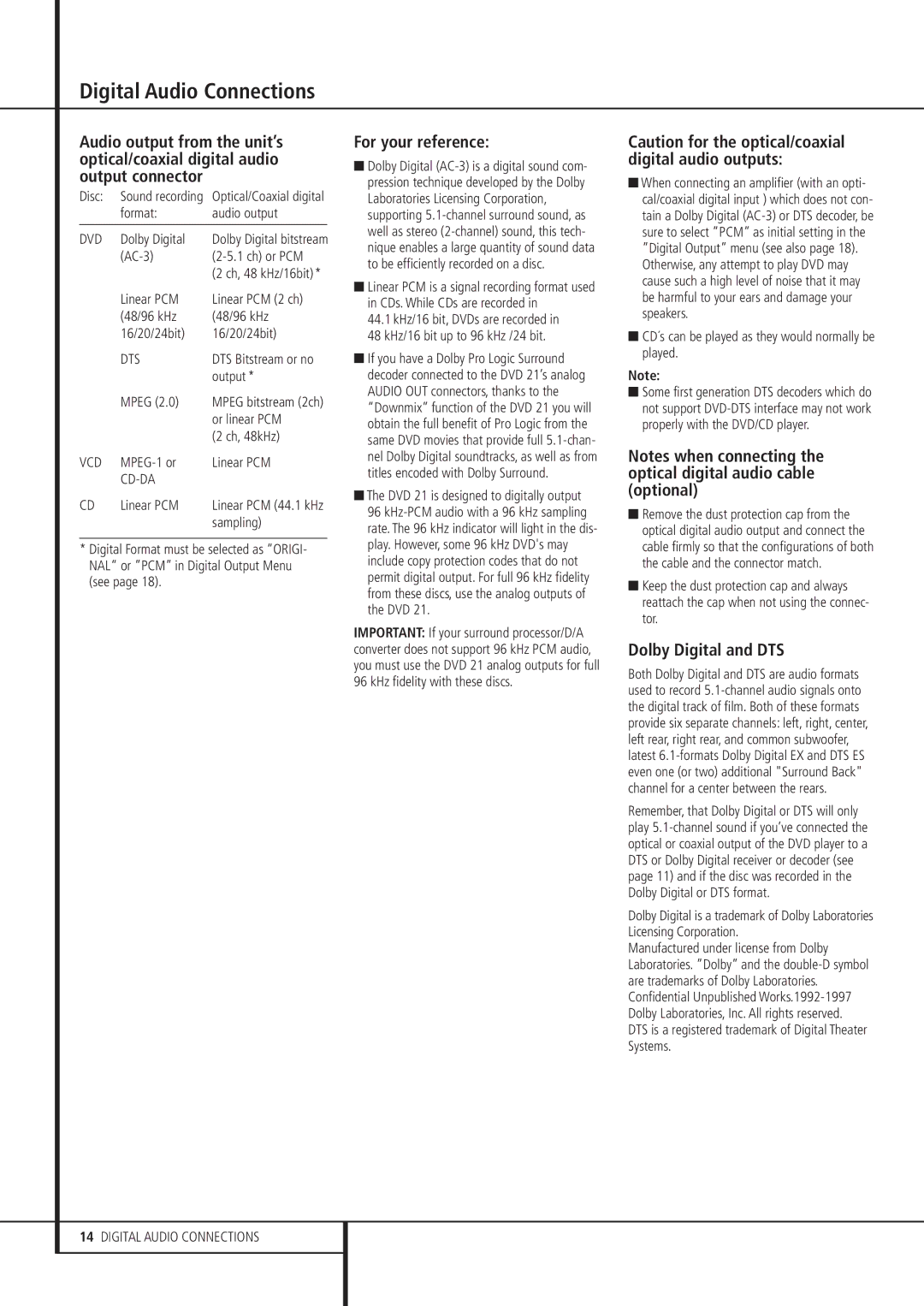
Digital Audio Connections
Audio output from the unit’s optical/coaxial digital audio output connector
Disc: | Sound recording | Optical/Coaxial digital |
| format: | audio output |
|
|
|
DVD | Dolby Digital | Dolby Digital bitstream |
| ||
|
| (2 ch, 48 kHz/16bit)* |
| Linear PCM | Linear PCM (2 ch) |
| (48/96 kHz | (48/96 kHz |
| 16/20/24bit) | 16/20/24bit) |
| DTS | DTS Bitstream or no |
|
| output * |
| MPEG (2.0) | MPEG bitstream (2ch) |
|
| or linear PCM |
|
| (2 ch, 48kHz) |
VCD | Linear PCM | |
|
|
|
CD | Linear PCM | Linear PCM (44.1 kHz |
|
| sampling) |
*Digital Format must be selected as “ORIGI- NAL“ or ”PCM” in Digital Output Menu (see page 18).
For your reference:
■Dolby Digital
■Linear PCM is a signal recording format used in CDs. While CDs are recorded in
44.1 kHz/16 bit, DVDs are recorded in
48 kHz/16 bit up to 96 kHz /24 bit.
■If you have a Dolby Pro Logic Surround decoder connected to the DVD 21’s analog AUDIO OUT connectors, thanks to the ”Downmix” function of the DVD 21 you will obtain the full benefit of Pro Logic from the same DVD movies that provide full
■The DVD 21 is designed to digitally output
96
IMPORTANT: If your surround processor/D/A converter does not support 96 kHz PCM audio, you must use the DVD 21 analog outputs for full 96 kHz fidelity with these discs.
Caution for the optical/coaxial digital audio outputs:
■When connecting an amplifier (with an opti- cal/coaxial digital input ) which does not con- tain a Dolby Digital
■CD´s can be played as they would normally be played.
Note:
■Some first generation DTS decoders which do not support
Notes when connecting the optical digital audio cable (optional)
■Remove the dust protection cap from the optical digital audio output and connect the cable firmly so that the configurations of both the cable and the connector match.
■Keep the dust protection cap and always reattach the cap when not using the connec- tor.
Dolby Digital and DTS
Both Dolby Digital and DTS are audio formats used to record
Remember, that Dolby Digital or DTS will only play
Dolby Digital is a trademark of Dolby Laboratories Licensing Corporation.
Manufactured under license from Dolby Laboratories. ”Dolby” and the
DTS is a registered trademark of Digital Theater Systems.
14DIGITAL AUDIO CONNECTIONS
